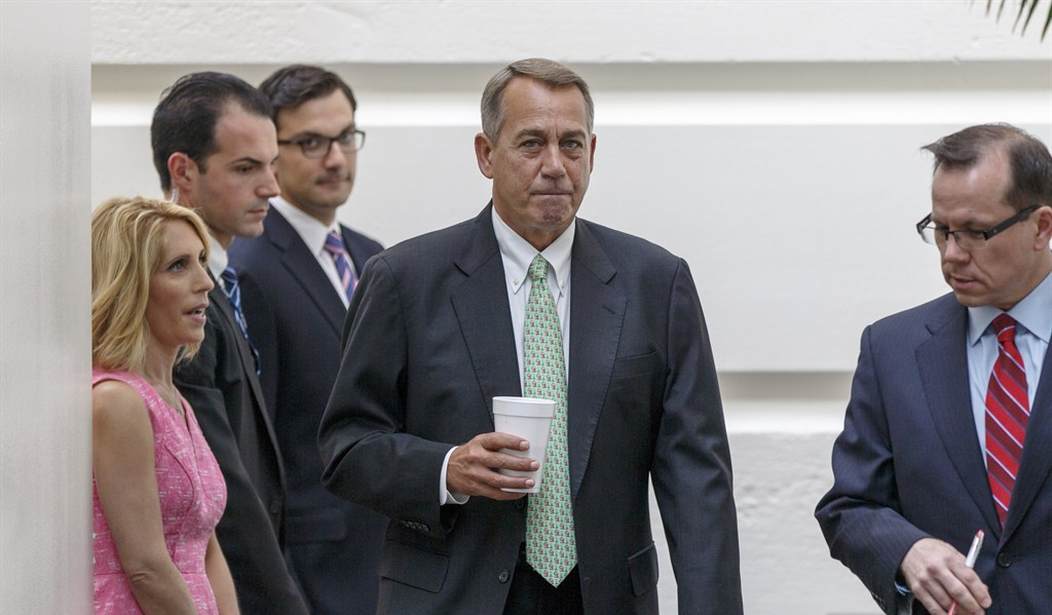There is growing optimism among Republicans that the GOP will take majority control of the Senate following the November elections. And yes, the likelihood is increasing that they could be right. But there's a wrinkle: It could be weeks or even months after the Nov. 4 elections before majority control of the Senate is decided.
RealClearPolitics is considered the gold standard for poll aggregation and elections predictions that display no bias or spin. According to RCP, Republicans are now favored to pick up seven additional seats in the Senate. That would give them 52 seats -- and control of both houses of Congress.
But among the states leaning or likely Republican in their Senate races are Louisiana and Georgia, both of which are highly susceptible to runoffs that would be held after the November general elections.
Consider Louisiana, where recent polls give an edge to Republican candidate U.S. Rep. Bill Cassidy over incumbent Democratic Sen. Mary Landrieu. Landrieu, whose famous family name is synonymous with Louisiana Democratic politics, is battling everything from Barack Obama's unpopularity to recent news stories noting that she lists her Washington, D.C., personal address for various official filings, rather than her parents' home in Louisiana, which she claims as her residence.
But most polls that show Cassidy leading in a tight battle fail to explain the implications of Louisiana's bizarre "Jungle Primary." A host of candidates ranging from other Democrats to several Republicans to a Libertarian are all listed on the ballot, with voters having to choose one among this all-inclusive field. If no candidate receives a majority of the vote, which is highly likely, then the two candidates who win the most votes head to a December runoff. That would reduce the Republicans to 51 seats -- and an effective majority of just one -- at least until after that Louisiana runoff.
Recommended
Then there is Georgia's requirement that a candidate must win 51 percent plus one vote to win the state's open Senate seat in November. Without a GOP win in Georgia, Vice President Joe Biden could control the deciding vote in next year's Senate.
In Georgia, the polls are all over the place. Two polls show Republican David Perdue leading the race, while two others give Democrat Michelle Nunn the edge. And there is a Libertarian in the race. Georgia voters have been known to give Libertarian candidates a healthy 3 or 4 percent of the vote, and that has thrown past Senate contests into overtime.
In 1992, the late U.S. Sen. Paul Coverdell defeated then-incumbent Democratic Sen. Wyche Fowler in a runoff election. And as recently as 2008, the Libertarian candidate has forced a U.S. Senate race in Georgia into a runoff.
Michelle Nunn might not enjoy the strong turnout of her Democratic base vote that was seen in Georgia in '08, but she is one of the few candidates nationally who is taking the 2012 Democratic theme of "the war on women" to the 2014 electorate. An Emily's List ad blatantly suggests that Republican Perdue ran a company that discriminated against women, and summarily tosses him onto the political trash heap. The ad is brutal, and arguably effective.
Nunn also delivered an attack on Perdue as an uncaring rich man who closed down a North Carolina factory he ran for a relatively short time, allegedly making off with nearly $2 million in the process. The ad is a homage to the "Mitt Romney, insensitive capitalist" campaign attack ads of 2012.
Whether the ads are doing substantial harm to Perdue remains to be seen. But the most recent polling suggests that the possibility of a runoff in that contest is rising. And amazingly, the Georgia runoff would not take place until January.
Such runoff elections can be tricky business when the rest of the nation has already decided their contests. Every well-known politician in America will descend on a runoff state, trying to win friends for themselves and votes for their party's candidate. Money and ads flow like water. And the slightest change in national or international events can shift momentum from one side to the other.
This much is certain: Given the president's low approval ratings in both Louisiana and Georgia, Democrats in both states would ask Obama to play plenty of golf during any potential runoffs -- preferably in faraway California, giving new meaning to golf's "winter rules."

























Join the conversation as a VIP Member